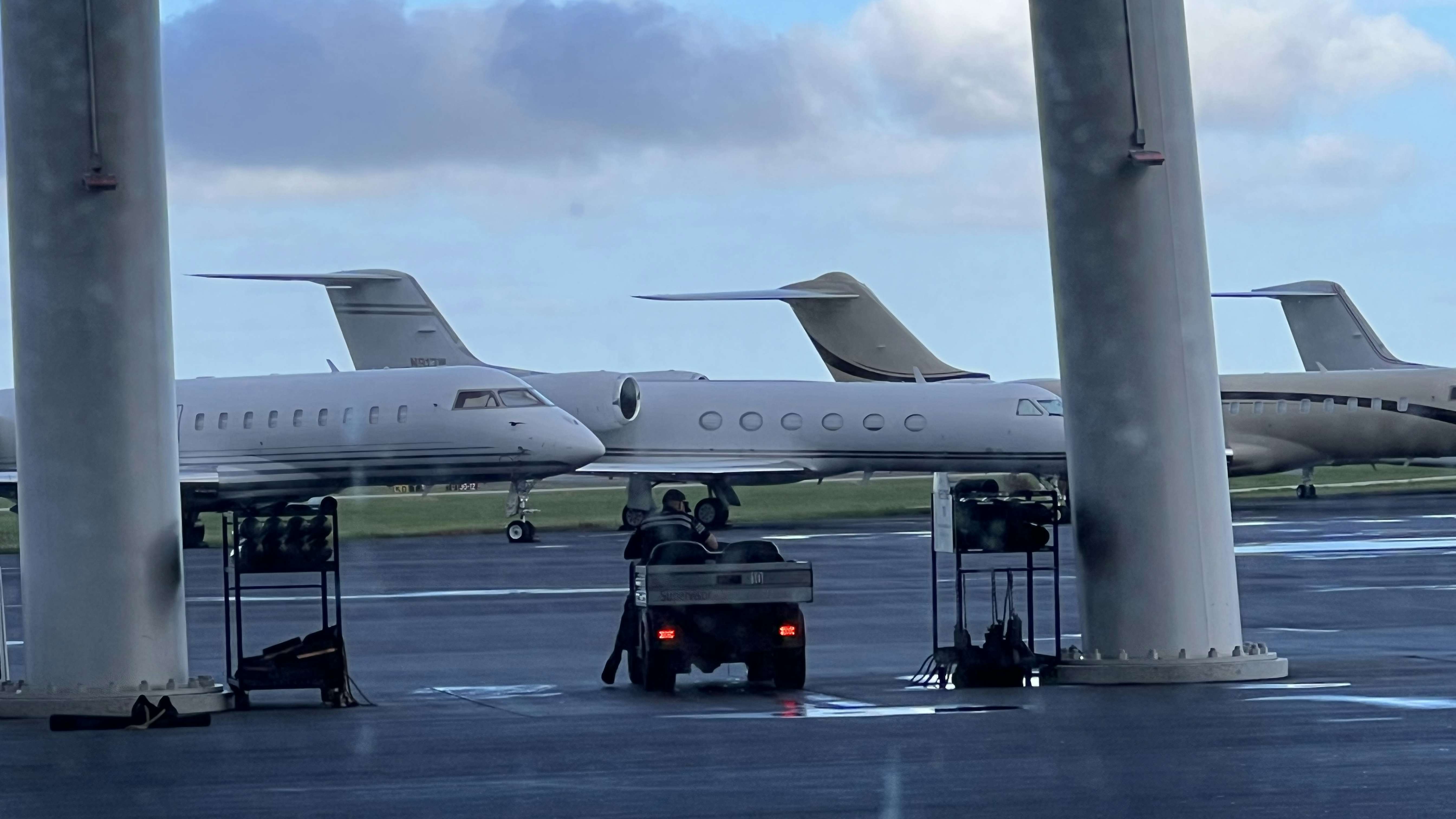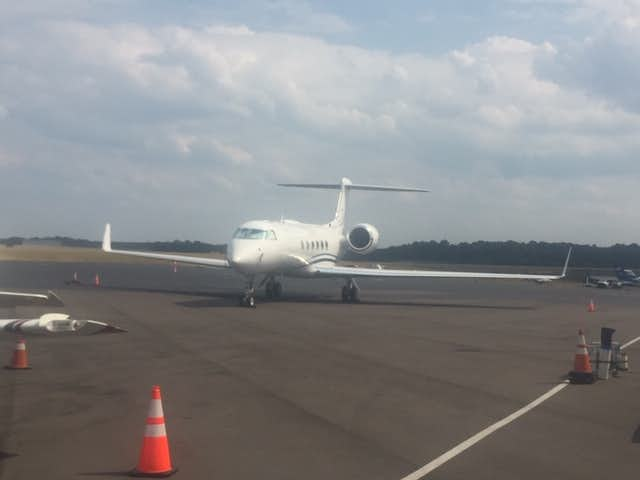

Air Partner is somewhat unique in the field of more than 55 jet card providers we track. It’s publicly traded, albeit in the U.K.
There are other jet card suppliers located within publicly traded companies – Delta Private Jets until its acquisition by Wheels Up, NetJets is owned by Berkshire Hathaway, and Jet Aviation by General Dynamics. However, results aren’t broken out in financials as they are with Air Partner.
Another difference is the diversity of the services it offers, from private and large group charters to freight, fatigue risk management, compliance and safety performance, bird control and wildlife management for airports, plus crisis emergency planning and evacuation.
In other words, while Air Partner may not be an operator, it also has a significantly diverse experience base compared to pure private charter brokers.
“This past year was a particularly rewarding one for Air Partner, with the addition of four new global offices, the introduction of new service offerings, an expanded team and a significant acquisition that further cemented our market-leading position,” says David McCown, president of Air Partner U.S.
He adds, “We are thrilled with how the U.S. market has performed and believe 2020 will see another strong year not only in the U.S. but in other key markets. We look forward to new key drivers unfolding within our segment, creating a dynamic and exciting year ahead.”
In particular, McCown points to jet cards. He predicts, “While the U.S. business aviation market has been experiencing solid growth for some years now, jet card memberships will continue to be a top growing segment of the industry for the convenience and time saving that they enable.”
Last year Air Partner became the first broker to offer a transatlantic jet card (both NetJets and VistaJet offer fixed-rate programs on their fleets). Brokers JetSet Group and Private Jet Services (PJS) Group have since added transatlantic cards as well.
McCown also says personalized service will be a priority.
He says, “While automated booking tools proliferate, Air Partner predicts that in addition to safety, customized personal service will be a top customer priority.”
He puts it this way. “With the complex scheduling involved in the air charter business, the human role in aircraft chartering can never be fully replaced. By utilizing an expert who works first-hand to arrange the specific details of their air travel, customers can expect quality and reliability time and time again.”
Air Partner jet card customers get a dedicated account manager who can even be on hand at the airport on the day of their flight to ensure everything goes smoothly.
He also says UHNW are increasingly seeking more remote places to explore, with the desire for ultra-personalized experiences continuing to shape travel trends.
It’s something he thinks will bring more customers to the industry. “With this, travelers will turn to fly private to obtain access to incredible, hard-to-reach destinations.”
Another area that has typically been a sweet spot for private aviation, Bleisure, combining business and leisure travel, will continue.
McCown time-constrained private aviation users will push to make the most of their time away from home, often extending business trips by flying friends and family to meet them in a destination.
Group charter, which is flights with 20 or more people, is another area where the CEO is bullish. Typical clients include governments, sports teams, live entertainment tours, corporations for meetings and shuttles, and tour operators.
McCown claims, “The ongoing decrease of quality charter carriers in the U.S. will reinforce the value of working with an air charter specialist to secure a quality lift.”
He says, “An air charter specialist has the experience and ability to source the most suitable and competitive aircraft from a wide range of operators whether it be a well-known flag carrier or a private aircraft operator. Along with their volume buying power, this can provide a significant saving for clients.”
Another factor driving growth in group private jet charters is the demand for reliable alternatives to scheduled airline flights.
Air Partner’s analysis shows corporations turning to global charter operators to avoid delays, security lines and crowded commercial airports for a stress-free, viable solution that fits their unique schedule.
By utilizing private charter, corporations gain back hours that would be spent taking a scheduled flight and can fit multiple cities within a day that wouldn’t be realistic using scheduled services.
McCown says for the same reasons, more companies are using group charters to bring their teams together for company meetings and incentives where airline delays can negate the impact of the get-togethers.
The Air Partner JetCard allows one to upgrade or downgrade cabin categories without surcharges, and in addition to across the Atlantic and North America, offers a service area in Europe. It also has a unique approach. Whereas most providers just want the money, while the company publishes rates, it only accepts members on a one-by-one basis after evaluating their flight needs.